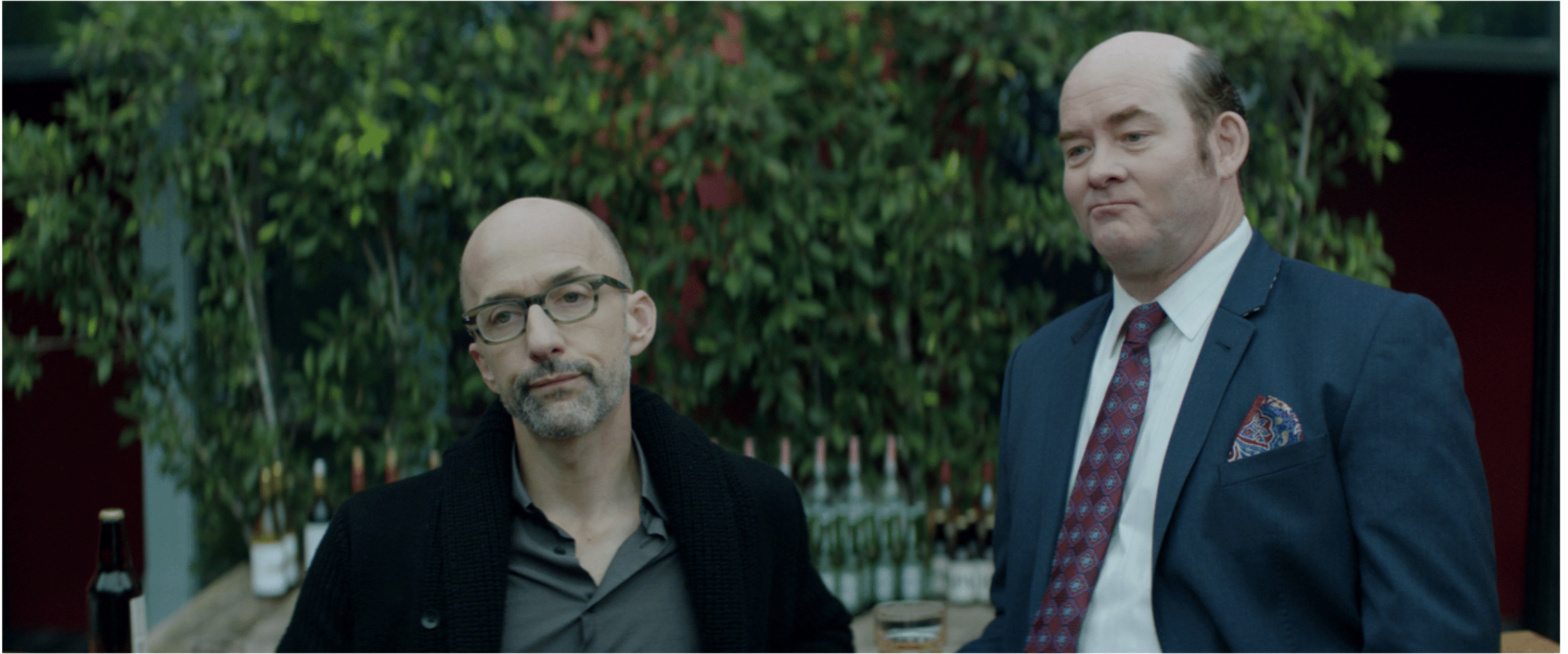Slamdance Film Review: Bernard and Huey
Film Reviews
Bernard and Huey
Slamdance Film Festival
Director: Dan Mirvish
Bernard and Huey is about what happens when two middle-aged men meet 25 years after their young friendship ran its course. It’s a film about men navigating their relationship to sex in the shadow of their own egos, of the confident and put-together women they fuck and, of course, each other. There’s a slight antiquated feeling to the film, with its focus on sad men refusing to grow up and always grasping for sexual validation—this is well-tread ground, and learning the backstory of the film’s production, it makes sense: The script was written by renowned cartoonist Jules Feiffer decades ago but has now been unearthed by Dan Mirvish. Bernard (Jim Rash) and Huey (David Koechner) meet after Huey shows up on Bernard’s doorstep. The film cuts to 25 years earlier. As younger boys, Bernard idolizes Huey and his sexual conquests—they talk freely and misogynistically as they run through Huey’s black book, trying to find a girl for the wimpy Bernard, swept up by Huey’s machismo and ability to get it.
Often the film will cut back to these “25 years earlier” scenes, giving us context for the ersatz friendship Bernard and Huey now have. They have switched roles: Bernard lives an ostensibly fulfilling life as a book editor in Manhattan, no longer playing the part of a wimp but that of the charming, well-read older man. Bernard brings woman after woman home while dating his friend Roz (Sasha Alexander). Huey has become the overweight buffoon that always lay underneath his boyish charm. One night as Bernard and Huey pass a couple of sex workers, Huey bemoans them: “They used to give it to me for free.”
When Huey shows up at his door, things begin to turn, slowly: Bernard meets and dates Huey’s daughter, Zelda (Mae Whitman), and he unravels his desire to cling to youth through her and her burgeoning career in graphic illustration. He hides from Zelda his relationship with Roz, and from Roz he hides Zelda. Meanwhile, Bernard builds his sexual confidence through old friends and flings, even beginning to reacquaint with his estranged family. The sexual streams cross as Huey sleeps with Roz, Bernard sleeps with Zelda, and neither come off as firmly footed.
Bernard and Huey is about two-thirds Bernard and one-third Huey. The two share a decent amount of screen time, but ultimately this story is about the neuroticism of the once-dweeb facing the people in his life who are happy to let him know what they think of him. Whether Bernard is floundering in his growing dependency on Zelda or struggling to articulate to Huey his discontent, we are watching a grown man come to terms with the parts of adulthood he only thought he’d conquered.
I liked Bernard and Huey for the way it grabbed Bernard and rattled him. Rash is nuanced and neurotic, and Koechner is a great foil. Whitman and Alexander deserve more focus in this story—neither Huey nor Bernard is that likeable, though there’s something to be said for the way the film directs its flow of empathy toward Bernard, then Huey, then Bernard again, turning Bernard inside out. Whether you enjoy this film will probably hinge on your interest in the gender dynamic, whether watching men struggle existentially while the women around them live unobsessed with lost youth and sex. Ultimately the film does achieve a clarity in its criticism of Huey and Bernard, of masculinity and its bizarre dynamics, but for some people, it might feel played out. Bernard and Huey are nothing if not played-out caricatures of the male ego, but that song and dance has its own bizarre satisfaction. –Parker Scott Mortensen
